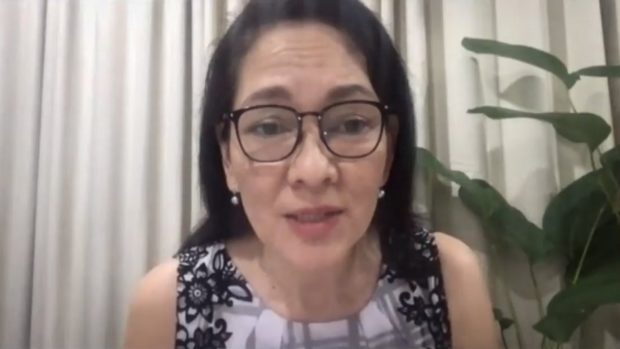
Sen. Risa Hontiveros. (File / Screen grab / Senate PRIB)
MANILA, Philippines — Senator Risa Hontiveros on Tuesday urged the Department of Social Welfare and Development (DSWD) to enforce mental health (MH) programs for typhoon victims who are either staying at evacuation centers or at their homes rebuilding what is left of their houses.
Hontiveros, who championed the Mental Health Law, noted that millions have been affected by the recent strong typhoons.
“With crisis upon crisis, we are at risk of free-falling into a deep mental health crisis if we don’t act swiftly. Mental health should be front and center along with food, water, and sanitation in evacuation centers,” she said in a statement.
The senator also pointed out the “snail-paced” implementation of the disaster-related MH programs.
“The crisis is happening right now. We need to fast-track guidelines and roll out services immediately,” Hontiveros said.
“MH is an invaluable part of rebuilding our lives after a crisis. MH issues like anxiety and depression make it much harder for typhoon survivors to recover. This will affect their work, their schooling and can scar their relationships if we do not heed their needs promptly,” she added.
Further, Hontiveros urged the DSWD to focus on the rehabilitation of the survivors’ mental health even after they leave evacuation centers.
“Hindi nagagamot ang mental health problems overnight (You cannot cure mental health problems overnight). It is important that the services they receive aren’t one-time, big-time. We should monitor the survivors to ensure that they receive therapy as needed and medicine if prescribed,” she said.
The senator also stated that mental health should be integrated in the disaster risk reduction and management (DRRM) plan of the country and cited the effects of Yolanda whose survivors are still experiencing anxiety and post-traumatic stress disorder (PTSD) seven years later due to the late response on their mental health.
“MH issues are a roadblock to transitioning back to regular life. Habang sinisigurado natin na malinis ang mga evacuation centers, importante ding siguraduhin na may mental health services para sa mga evacuees,” she said.
(MH issues are a roadblock to transitioning back to regular life. While we ensure that our evacuation centers are clean, it is also important that we ensure mental health services for the evacuees.)
“Many of them lost everything, and it is uncertain when they will get to leave and when their homes will get rebuilt. In trying to keep them healthy, it is important to consider the depression and even suicidal thoughts they might be experiencing as well,” she added.
“Our mental health program should be executed so that our survivors can still sleep soundly at night without fearing that every rain or strong wind will end their lives as they know it. Samahan natin sila sa journey (Let’s join them in their journey ) to recovery nila every step of the way,” she concluded. Zac Sarao, INQUIRER.net trainee